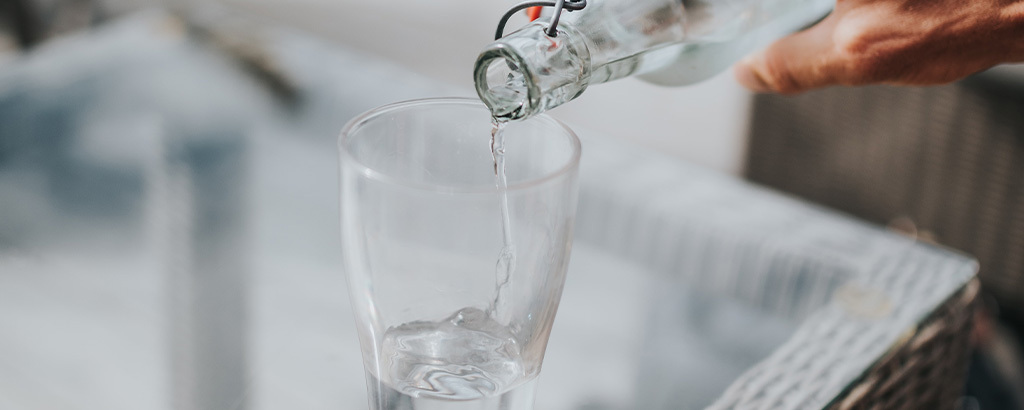Now that summer is here, we are set to face increased temperatures. One of the main hazards to our health at this time of year is dehydration. This is true regardless of age, though the elderly may be at increased risk. Staying safe in summer isn’t just a matter of keeping cool; you should also make sure you are drinking enough. Here are the warning signs of dehydration, as well as methods to keep your fluids up.
Dehydration Warning Signs
Often, summer heat can be uncomfortable. We sweat more and may end up feeling tired. However, sometimes this discomfort crosses into danger. Sweating reduces the amount of fluid in our bodies, which is necessary for many biological processes. And the tiredness we feel may be a result of poor hydration.
Common Signs
When you are dehydrated, your body will start to crave water. Unfortunately, in later life our thirst reflex tends to become weaker. This means we may not be drinking as much as we need. Fortunately, increased thirst is not the only sign of dehydration.
You may also notice:
- • Dry mouth – If your mouth feels drier than usual, then you should increase your fluid intake.
- • Tiredness – You aren’t tired just because it’s hot. Your body needs fluids to function properly.
- • Sunken eyes – You might dismiss this as tiredness, but in hot weather it is more likely to be a sign of dehydration.
- • Peeing less often – Perhaps unsurprisingly, if you have less fluids in your body, you will need to pee less often.
- • Darker urine – When you do pee, you may notice it is dark yellow or brownish in colour. This is a sign of dehydration.
- • Muscle cramping – As dehydration advances, you may experience cramps in your muscles.
- • Dizziness or light-headedness – Your brain is mostly water; low fluids can interfere with your brain’s effectiveness, resulting in dizziness or light-headedness.
Serious Signs
If you ignore the common signs of dehydration, they could progress into more severe symptoms. These symptoms could be dangerous. If you reach these stages of dehydration, it is important to address them immediately. Otherwise, you may require medical intervention.
You may experience:
- • Rapid heart rate – An increased heart rate, especially if accompanied by other symptoms, is a sign that you are severely dehydrated.
- • Difficulty moving or walking – Muscles require fluids to function properly. You may find your coordination begins to suffer.
- • Confusion or disorientation – Lack of fluids in the brain affect its processes.
- • Fainting – This can result in injuries, which can be more serious amongst elderly people.
Dehydration Solutions
Prevention is always better than cure. It is also, generally speaking, more pleasant than treatment. The best solution for dehydration is to stay hydrated. When weather is hotter, you should adjust your drinking habits accordingly.
Prioritise cool drinks such as squash, low sugar fruit juices, and, of course, water. Avoid hot drinks as they can make you need to urinate more often despite being dehydrated. You can also eat more snacks with high water content, such as fruits, cucumber, and low salt soups.
In some cases, your body may also lose electrolytes. Electrolytes are our bodies’ essential minerals, which the body uses to complete essential functions. A lack of electrolytes can contribute to dizziness and fainting. Sports drinks are designed to replenish our electrolytes; if regular drinks aren’t alleviating your symptoms, consider a sports drink instead.
If symptoms become more severe, resulting in heatstroke or other complications, hospitalisation may be required. Under these circumstances, fluids and electrolytes are provided by an intravenous drip. It may take some time to recover from severe dehydration, hence prevention being preferable.
Stay Safe This Summer
Here at Carelink24, we want you to enjoy your summer. It is an ideal time for getting out of the house and spending time with family. However, we also want you to be safe. A personal alarm offers peace of mind if you feel unwell or have a fall.
If you require support at home, simply press the button on your alarm and help will be arranged by our 24/7 Care Team. Our staff are available 365 days a year, ensuring you are always in safe hands.
To find out more about the Carelink alarm service, read our helpful guide. Don’t forget to order your Carelink24 alarm today. If you have any questions about our life-saving service, please do not hesitate to call on 0800 0076 247.
Editor’s Note: This article was updated on 1st July 2024 to reflect current information.


